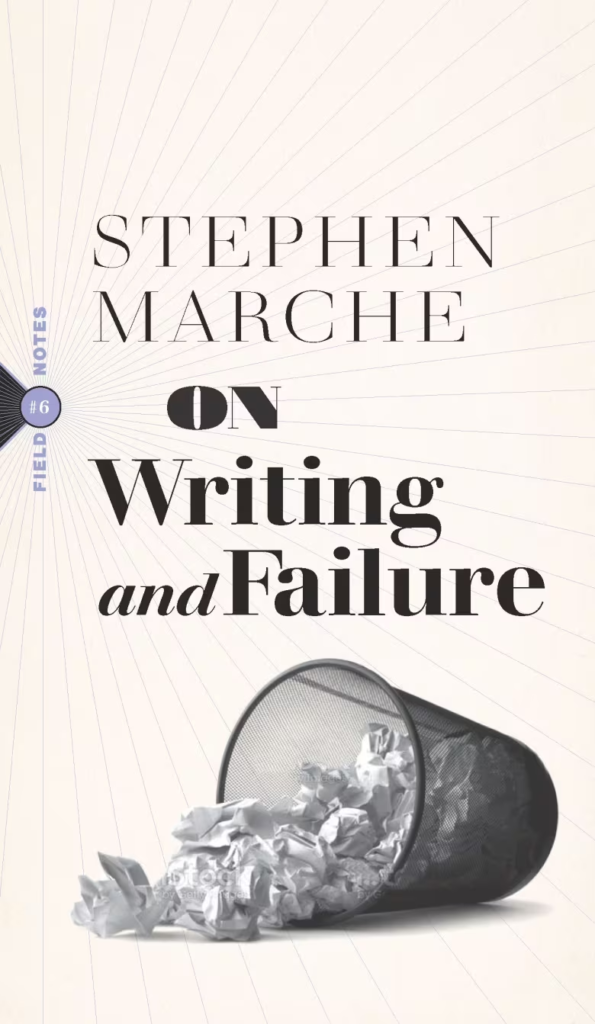
On Writing and Failure: Or, On the Peculiar Perseverance Required to Endure the Life of a Writer
Stephen Marche, 87 pgs, Biblioasis, biblioasis.com, $15.95
I’m always amazed when my earnest undergrad students approach me with the YA fantasy trilogy or dystopian sci-fi adventure they’ve been scheming up, worried only about how they’ll spend their inevitable millions. The writing, they imagine, is a mere formality to be gotten out of the way before glorying in fame and success. They don’t yet know that most books are never written, and an astonishing number of those that are never find an agent or publisher. The average book sells a few hundred copies and makes maybe fifteen hundred bucks. In Canada, moving 5,000 copies is considered bestseller territory.
Stephen Marche is here to set the record straight in his slim volume of hard truths: writing is failure. It’s not a route to fame, money, or even a basic living. It is hard work, suffering, and sacrifice with little guarantee of reward. It is constant rejection — “throwing yourself against the door so that a crack may allow light in.”
On Writing and Failure is driven by difficult questions posed with hilarious (indeed, maddening) bluntness: “You think it should be easy to sell your feelings? You want to be congratulated for it? You want them to throw you a big party?”
The book is composed of brief, sobering anecdotes, mostly about canonical (read: white, male) writers who we consider “successful”: Samuel Johnson was “broke as fuck” and Richard Savage died in debtor’s prison. The only publisher Vladimir Nabokov could find for Lolita was a pornographer invested in destigmatizing pedophilia. George Orwell’s Animal Farm was published so long after he’d written it that the political allegory was hopelessly misunderstood. James Joyce couldn’t even get a job as a part- time lecturer at a low-level college. Jane Austen had to pay up front to have her books published and didn’t live to see her name on any of them. As Marche so aptly asks, “Why would it be any different for you?”
Marche is reluctant to give generalized advice, but what he does offer cuts right through the bullshit: the quality of your writing has depressingly little effect on your career, yet it is the only thing that matters. If you want to write well, you’ll have to do it for its own sake, submitting and persevering. No whining. No complaining. Just write.





